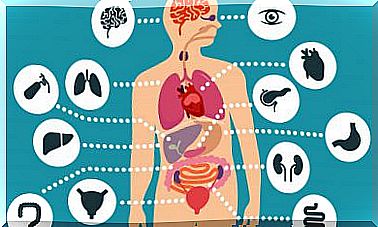If Your Children Ask You For Attention, It Is Not Because Of Annoying, It Is Out Of Necessity

If a child asks for your attention, it is not to bother, it is not a whim. What he is looking for is that emotional connection that is transmitted through a look, a caress, a word, affection and a lot of patience.
According to Boris Cyrulnik, famous neurologist and author of “Affective Foods”, each interaction we have with our children can create two completely opposite paths. Depending on how we react to each demand of the little ones, a positive impact will be created, that is, a positive affective caress or, on the contrary, a negative response or their “emotional hunger” may even be increased even more .
In reality, we are not always aware of the importance of responding to each cry of our children, to each word, to each question or to each pull of our clothes that they give us from their height. They ask us to be “present” for them, to be guides of their curiosity, the consolation of their fears and the daily support of each of their discoveries.
It is not easy to be aware of them every day and every hour with the same spirit and with the same energies . However, it is worth remembering an essential aspect: the period in which a child demands our attention is not very long. When we realize it, they will have reached puberty and at that moment, that boy or that girl will start an opposite journey: that of introspection, that of discovering their own identity.
If we have been those allies of yours throughout childhood and your reference to any need, we will have laid a magnificent foundation to strengthen your self-esteem and personal growth. We propose that you manage all your needs in the best way starting today. We explain how.
All they want from you is your attention

The first way a child demands our attention is by crying. So much so that sometimes, they do not cry just because they are hungry or because they need a diaper change.
A baby cries above all for emotional needs : fear, need for closeness, feeling abandoned, helpless … They crave to feel safe, and something like that is only satisfied with mom or dad nearby.
If a baby cries, he does not do it to blackmail his parents, he does it out of an authentic need, and it will be useless to neglect his crying. Something like that is not going to help them get older. Neglecting a cry is letting him know that his needs will not always be met.
Let’s see more data in detail.
From 0 to 2 years old: I need you to survive
There are mothers and fathers who complain about the intensity with which the baby emits his cry. It is heartbreaking. It is not that your child is special, in fact, crying has that mission: it is the only mechanism a young child has to ask for help: he needs you to survive.
From 2 to 4 years: aggressive or constant demand for attention

There is a detail that needs to be made clear: there are hyper-demanding children. This does not mean that we are necessarily hyper-passive fathers and mothers . It means that our son needs more than the rest, that his mind harbors more fears, more anxieties and a greater need for closeness.
- Sometimes he even demands your attention in an aggressive way. Faced with this type of behavior and reactions, there is only one formula: patience and closeness.
- He thinks that a child’s brain follows a maturing rhythm and that sometimes the emotional plane is still governed by intense fears, by the continuous feeling of insecurity.
Next, we explain how to manage these situations.
Faced with the need for attention, emotional connection and setting limits

We are all very clear that we will not always be able to meet each and every one of the emotional needs of our children. First of all, because even if we wanted to, we can’t always be with them 24 hours a day. Second, because sometimes, and as they get older, some needs are not logical or opportune.
Therefore, it is necessary to know how to act with adequate wisdom and above all, Emotional Intelligence.
- Learn to connect with your child. We talk about that emotional connection where you always understand what you want and what you really need.
- Make sure that the time shared with them, be it an hour or ten hours, is always of QUALITY.
- Take care that your son sees in you that mother in whom he can trust. He must perceive that his every word is going to be heeded, that when he speaks you pay attention to him and that for you, he is the most important thing in the world.
- Also learn to set limits and manage negative emotions. To do this, nothing better than saying “I know how you feel, I understand you, but now is not a good time, I’m making dinner. If you want, you can help me and if you don’t wait for me 15 minutes, and then Mom will be with you for whatever you want.
Closeness, empathetic and authentic attention, patience and the appropriate establishment of limits, can help us every day to educate the needs of our children more fully. Because remember, those demands are never the origin of a random whim: but of your natural process of emotional maturity.









